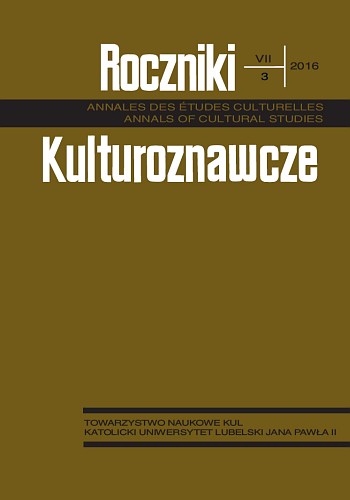Profetyczny ironista na przełomie epok – o możliwych śladach koncepcji ironii Kierkegaarda w poemacie Norwida Quidam
The Prophetic Ironist at the Turn of Epochs: Possible Marks of Kierkegaard’s Irony Concept in Norwid’s Poem Quidam
Author(s): Elzbieta LijewskaSubject(s): Language and Literature Studies, Studies of Literature, Polish Literature
Published by: Towarzystwo Naukowe KUL & Katolicki Uniwersytet Lubelski Jana Pawła II
Keywords: Cyprian Norwid; Søren Kierkegaard; the student circle in Berlin; anti-Hegelian opposition; Socratic irony; Quidam, poem by Norwid
Summary/Abstract: This article points to interesting similarities in the idea of Norwid and Kierkegaard—those two Socrateses of the 19th-century Europe—e.g. those referring to their diagnosis of the condition of society which was Christian in name only. The author suggests that Norwid may have met some of the Danish philosopher’s concepts not through reading his works but ‘second-hand.’ It is indicated that the student circle in Berlin (e.g. Caspar Wilhelm Smith) might have participated in transmitting the Danish thinker’s thoughts. The author makes an attempt to trace Norwid’s knowledge of the review of Kierkegaard’s treatise On the Concept of Irony printed in “Deutsche Jahrbücher für Wissenschaft und Kunst” (1842), written by Andreas Frederik Beck. The second part of this article contains a question whether the main character of the poem Quidam by Norwid has any features of Socrates—an ironic individual (as Kierkegaard understood him) who appeared at the turn of two epochs: paganism and Christianity. The author implies that Norwid’s poem may be perceived as an opinion in the debate between Hegelians and anti-Hegelians, which occured on the tide of German new Hellenism, about similarities and differences between Platonism and Christianity.
Journal: Roczniki Kulturoznawcze
- Issue Year: 7/2016
- Issue No: 3
- Page Range: 81-99
- Page Count: 19
- Language: Polish

